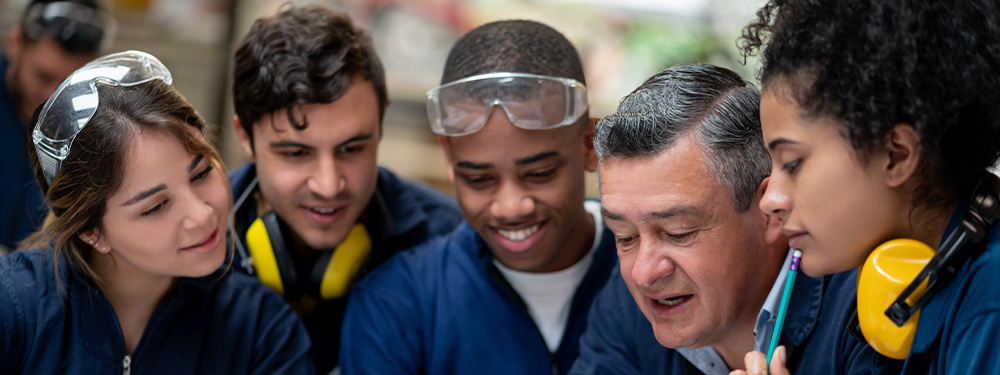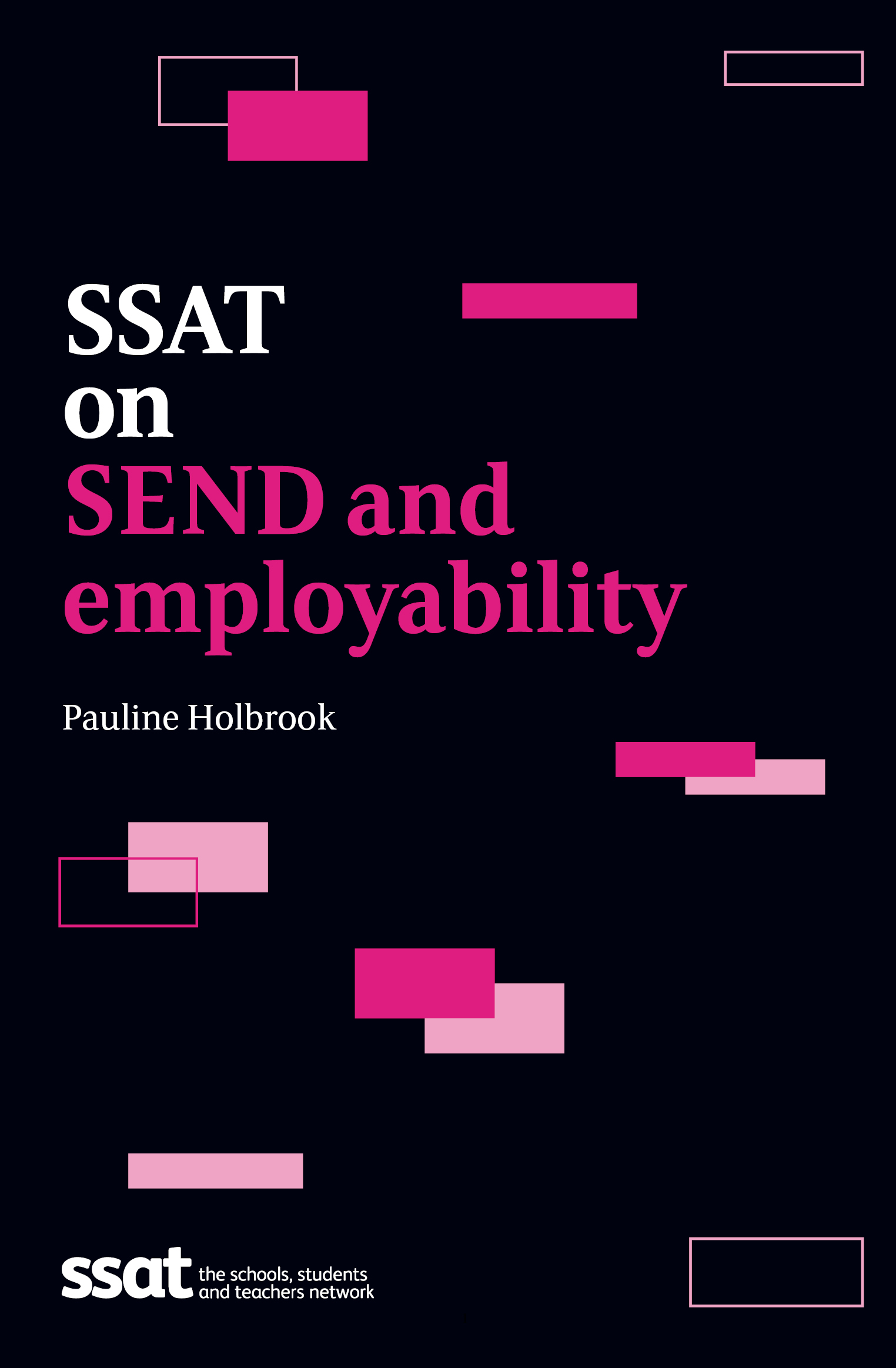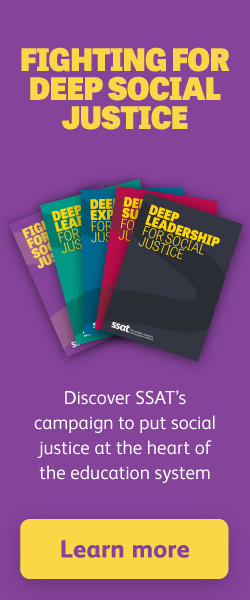
Originally published in the SSAT Journal 17: Spring/Summer 2020, SSAT editor Peter Chambers outlines the benefits of work experience for students and its long-term impact on career choices
Work experience can be very valuable in giving students opportunities to discover or refine their career ambitions, and in helping them to develop the skills and attitudes that are valuable in any job. If the placement is suitable for their needs and managed well, it gives them an insight into the world of work and employability skills. And it can enable them to gain skills and experience to access higher education.
Research shows students who did work experience are less likely to end up not in education, employment or training (NEET). For example, those aged 14-19 are 44-45% less likely to be NEET than peers who did not do the activity, according to the charity Education and Employers.
Another of its reports shows 58% of teachers found work experience improves student attainment. A literature review showed improvements in young people’s understanding of jobs and careers; broadening and raising career aspirations (and the realism thereof); providing knowledge and skills demanded by the labour market; and enriching education and underpinning pupil attainment.
Employer engagement activities and academic achievement
The Education and Employers research above also showed:
- 2% of teachers believed that employer engagement activities have an impact on pupils’ academic achievement
- Teachers from disadvantaged schools (in terms of FSM eligibility) and underperforming schools (Ofsted rankings) were most likely to agree that these activities had impact
- Girls, those uncertain about their future, higher and borderline achievers are especially likely to improve their academic achievement.
Looking at it from the students’ point of view is also largely positive. Young people report that they return from work experience more motivated to do well at school. AllAboutSchoolLeavers’ research shows that 47% of students say it is the factor most likely to persuade them to do an apprenticeship or take on a role within a company.
Companies too: more than 85% of employers think work experience “is a way for us to find future employees”, and 73% of employers think work experience provides “better access” to their particular profession. And 66% of recruiting employers rated work experience as a significant factor looked for in candidates (UKCES Employer Perspectives Survey, 2014).
Small examples can be edifying
What did I learn from this varied hotchpotch of jobs I had? Be willing, do what is required, be adaptable. And accept that sometimes you fail. But it’s an opportunity to learn, to recognise the things you are not good at, to get better. It can teach you to be able to communicate openly with people of all sorts, not to be put off (usually) by unexpected behaviour, and to remember what you are there for, what the aimed-for end product should be. And if my boss was peremptory, judgemental or overly demanding, well those were things I had experienced before.
Those who miss out on this vital opportunity really do feel it later on in life: 31% of young people starting their working lives do not feel they have the appropriate skills, citing a lack of work experience (71%) as being their main weakness (CBI/Pearson Education and Skills Survey, 2013).
What makes good work experience?
Teachers should aim to help/enable students to gain work experience that helps with:
- Attitude to work
- Learning what they are good at
- Getting used to criticism, and how to react positively to it
- Versatility
- Confidence, getting on with strangers
- Developing particular skills
- Experience of different industries
- Experience of travel and different locations
- Deciding whether any thoughts about eventual career choices are reinforced or changed by the experiences.
Such help is all the more important these days, with the decline in many high-street outlets that used to be common providers of work experience for school students. In some cases, of course this has created opportunities for suitably skilled and motivated young people to develop their own digital businesses. But for most, working for established employers, voluntary organisations etc still has much value.
Official guidance says school sixth forms should be flexible about the timing and length of placements. They could be (outside the holidays): once a week throughout a term, longer block placements, or a rotation of shorter placements at different employers so students can experience different aspects of the sector.
The type of placement – and the level of responsibility a student is given – will depend on their age and stage at school. Year 9/10: a general introduction to the world of work, where the student learns about self-management, communicating with adults, co-operating with others in a team and understanding how an organisation works. Year 11: testing out an area or industry they may be interested in, bringing a job to life, confirming interest or, equally useful, deciding it is not for them. Year 12/13: enabling students to check out career areas if applying for a vocational course, and show evidence of useful skills for coping with university study and life.
What kind of work experience opportunities are there?
Some businesses run work experience programmes in partnerships. Barclays, for example, encourages other businesses to offer placements via its LifeSkills platform and provides a wide range of resources for students, parents and teachers. In many areas, education business partnerships (EBPs) and/or careers companies provide placements, carrying out the necessary risk assessments, health and safety and insurance checks and charging schools a fee for each placement. Organisations such as the fire service and some large companies have their own work experience programmes.
Some schools rely on their students themselves finding placements, using family networks, or contacting businesses themselves.
Get students to research local companies in their chosen field – they should always write to a direct contact, which they should be able to find via the website or by calling them direct. For speculative enquiries to employers, students should send a brief CV and covering letter stating clearly when they are available and what they want, whether it is work experience, a part-time job, voluntary work or work shadowing.
Get your students to think more widely about where they can find experience, directing them to volunteering, seasonal work and gap year websites.
How do students gain most from their work experience?
Encourage students to think ‘around’ their chosen subject – especially if direct placements are highly competitive. For example, medical students can gain as much from a placement in a care home as in a hospital.
Setting up work experience
Barclays LifeSkills recommends a structured approach to help ensure that a work experience programme operates efficiently and each young person gains the most from their placement:
1. Preparation
- identifying students’ needs
- sourcing placements
- conducting pre-placement
- visits / contact with employers
- setting out objectives
- identifying and fulfilling legal requirements.
2. Briefing students and employers
- preparing students thoroughly
- highlighting objectives
- briefing the employer on the objectives of the work experience and providing information about the student.
3. Support during placement
- setting up and undertaking monitoring visits.
4. Debriefing
- providing opportunities for students to reflect on and apply their learning
- offering a range of follow-up activities
- encouraging students to write
- thank-you letters to employers.
5. Evaluation
- involving employers, students and school staff
- learning from successes and issues arising
- identifying employers who would be willing to participate in future years.
Using a work experience log, including a diary, can help students to prepare and get the most out of work experience. Many local authorities offer work experience logs and diaries.
If students in previous years have had successful placements, arrange an event where current students can talk to them to get an insight and share contacts.
This article was originally published in the SSAT Journal 17: Spring/Summer 2020. SSAT members can download their digital copy from the Library.
Not an SSAT member?


